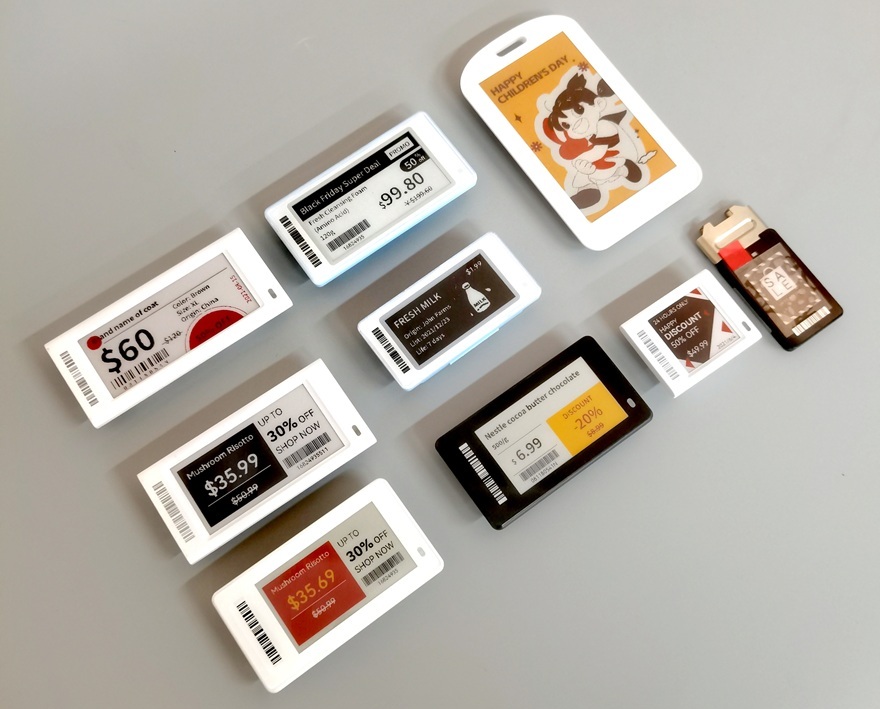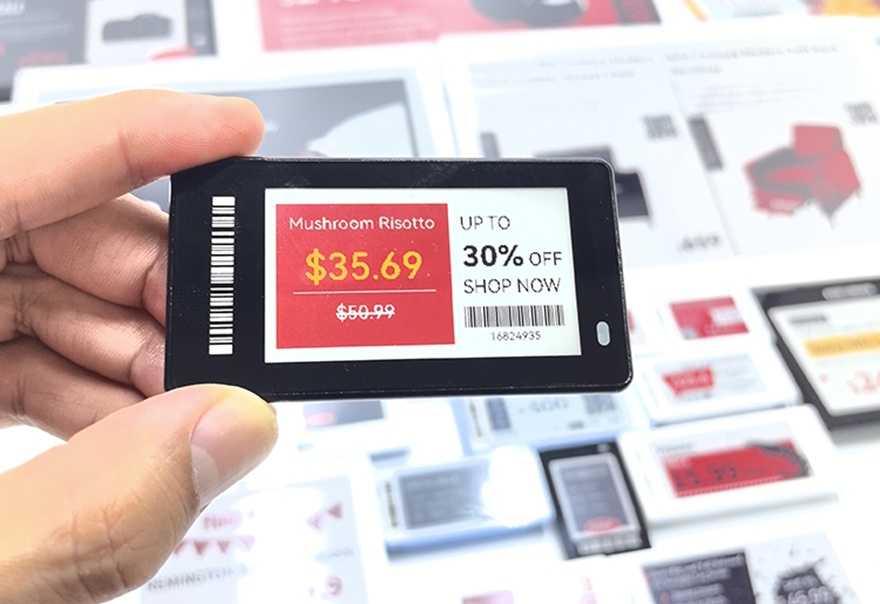Can MRB ESL Software Operate on a Virtual Private Server (VPS)?
The compatibility of ESL software with Virtual Private Servers (VPS) is a key concern for retailers seeking flexible and cost-effective deployment options. For MRB Retail’s ESL electronic shelf labeling solutions, the answer is a clear “yes”—our ESL software seamlessly runs on VPS environments, provided the VPS meets specific system and network requirements outlined in our deployment guidelines. This flexibility empowers retailers to leverage existing VPS infrastructure, reduce hardware procurement costs, and scale their ESL electronic pricing display systems efficiently, all while unlocking the full potential of MRB’s industry-leading ESL technology.
Table of Contents
1. VPS Compatibility: Meeting MRB ESL Software’s Core Requirements
2. Network Specifications: Ensuring Uninterrupted ESL Connectivity
3. MRB ESL Product Advantages: Elevating VPS-Based Deployments
4. Conclusion: VPS as a Flexible, Powerful Option for MRB ESL Users
VPS Compatibility: Meeting MRB ESL Software’s Core Requirements
MRB ESL software’s VPS compatibility is rooted in adherence to clear, standardized system configurations, ensuring stable performance across virtual environments. Our software is optimized for Linux-based operating systems, with CentOS 7.5 or 7.6 being the recommended choices—these versions strike a balance between security, stability, and compatibility with MRB’s ESL management tools. When it comes to hardware resources, the VPS must meet minimum specifications to support smooth software operation: a 4-core CPU to handle concurrent device connections and data processing, a minimum of 8GB RAM (16GB RAM is strongly recommended for larger deployments with hundreds of ESL digital price tags), and at least 100GB of disk space to store configuration files, firmware updates, and transaction logs.
Notably, these requirements align with the same standards we outline for physical server deployments (as detailed in our ESL Server Deployment documentation), meaning retailers can expect consistent performance whether they choose VPS or on-premises hardware. For example, a mid-sized grocery store using 300 MRB ESL tags (such as our popular MRB HAM290 2.9-inch e-paper retail shelf price tags) will find that a VPS with 16GB RAM and a 4-core CPU handles real-time price updates, inventory syncs, and tag status monitoring without latency.
Network Specifications: Ensuring Uninterrupted ESL Connectivity
Beyond hardware, a robust network setup is critical to maximizing MRB ESL software’s functionality on a VPS. First, the VPS must support static IPv4 addresses—this ensures that the ESL server maintains a consistent connection to MRB’s cloud management platform (MRB Cloud) and to the in-store gateway (such as our MRB HA169 AP base station gateway), which communicates directly with ESL digital shelf price labels via low-power Bluetooth (BLE) or LoRaWAN. A static IP prevents connection drops that could disrupt price updates or inventory data syncs, a common pain point with dynamic IP addresses in retail environments.
Second, bandwidth is a key consideration. We recommend a minimum of 100Mbps cloud server bandwidth for VPS deployments, with data usage-based pricing (a standard model offered by most VPS providers like AWS, Azure, or DigitalOcean). This bandwidth ensures that large batches of updates—such as updating prices across 500 MRB-T500 5-inch tags for a weekend promotion—are completed in seconds, not minutes. For retailers with multiple store locations, MRB ESL software further optimizes network usage by compressing data packets and prioritizing critical tasks (e.g., real-time price changes over historical report generation), minimizing unnecessary data consumption and keeping costs predictable.
MRB ESL Product Advantages: Elevating VPS-Based Deployments
Choosing MRB ESL software for VPS deployment isn’t just about compatibility—it’s about unlocking the unique advantages that make MRB a trusted name in retail digitalization. Our ESL ecosystem is designed to be modular, scalable, and user-friendly, making it ideal for VPS environments where flexibility is key.
One standout feature is seamless integration with MRB Cloud, our proprietary cloud platform. When deployed on a VPS, MRB ESL software syncs in real time with MRB Cloud, allowing retailers to manage all ESL smart shelf edge display labels across multiple stores from a single dashboard. For example, a regional pharmacy chain can update over-the-counter medication prices across 10 locations—each running MRB ESL software on a local VPS—with just one click, eliminating the need for manual in-store updates and reducing human error.
Our ESL smart shelves price tags themselves also enhance VPS-driven efficiency. Models like the MRB HSM213 electronic shelf labeling system (2.13-inch), MRB HAM266 E-paper electronic shelf label (2.66-inch), and MRB HS420 electronic price display labeling (4.2-inch) feature ultra-low power consumption (lasting up to 5 years on a single AA battery) and durable e-paper displays that work in direct sunlight—critical for retail environments like grocery stores or convenience stores. When paired with a VPS, MRB ESL software can remotely monitor battery levels and tag health, alerting store managers to replace batteries before a tag fails, ensuring zero downtime.
Additionally, MRB ESL software offers robust security features that are essential for VPS deployments. All data transmitted between the VPS, MRB Cloud, and ESL E-ink electronic pricing tags is encrypted using AES-256 encryption, protecting sensitive information like pricing strategies and inventory data from unauthorized access. The software also includes regular over-the-air (OTA) firmware updates, which are pushed directly to the VPS and then to ESL smart pricer E-tags—ensuring that retailers always have access to the latest features (e.g., support for new tag models, enhanced energy efficiency) without needing to manually update servers.
Conclusion: VPS as a Flexible, Powerful Option for MRB ESL Users
For retailers considering VPS for their ESL deployment, MRB ESL software offers a reliable, high-performance solution that aligns with modern retail needs. By meeting our clear system (CentOS 7.5/7.6, 4-core CPU, 8GB+ RAM, 100GB+ disk) and network (static IPv4, 100Mbps bandwidth) requirements, retailers can leverage VPS to reduce costs, scale quickly, and manage their ESL systems with the same ease as physical servers.
Coupled with MRB’s industry-leading ESL digital price tag labels for shelves, intuitive MRB Cloud platform, and robust security features, a VPS deployment becomes more than just a technical choice—it’s a strategic investment in retail efficiency. Whether you’re a small boutique or a large chain, MRB ESL software on VPS empowers you to streamline operations, reduce manual labor, and deliver a seamless shopping experience for your customers.
If you’re ready to explore VPS deployment for your MRB ESL system, our technical support team is available to help assess your infrastructure, verify compatibility, and guide you through setup—ensuring a smooth transition to digital price tags.

Author: Lily Updated: September 12th, 2025
Lily is a Senior Product Specialist at MRB Retail, with over 10 years of expertise in retail digitalization and ESL (Electronic Shelf Edge Label) solution design. She focuses on bridging technical functionality with real-world retail needs, helping brands of all sizes—from local boutiques to national grocery chains—optimize ESL deployments, whether on VPS, physical servers, or hybrid cloud environments. Lily has led the technical consultation for over 30 MRB ESL implementation projects, specializing in troubleshooting deployment challenges, optimizing network and server performance, and training teams to leverage MRB’s ecosystem (including MRB Cloud and ESL tag models like MRB HAM266 and MRB HSM290) to streamline operations. Her work is driven by a passion for making retail technology accessible and impactful, ensuring that MRB’s solutions deliver tangible value—from reducing manual labor costs to improving price accuracy and customer experience. When not working with clients, Lily contributes to MRB’s technical content library, creating guides and articles that demystify ESL technology for retailers and IT teams alike.
Post time: Sep-12-2025


